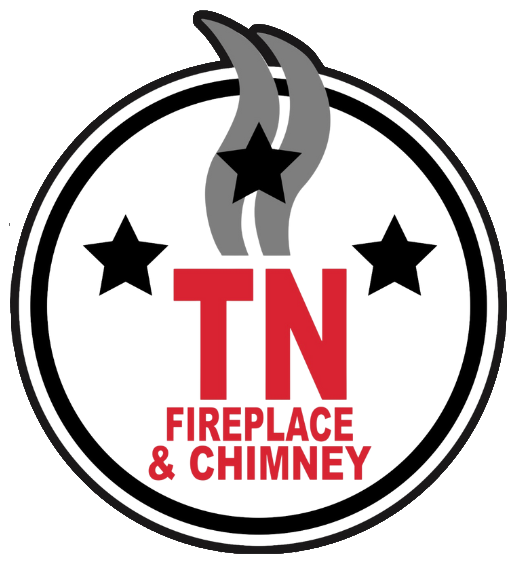As spring is on the horizon, you may have less use for your chimney, but that doesn’t mean problems won’t arise during that time. While your chimney is made of highly durable materials, it is constantly exposed to an onslaught of environmental factors, including heat, cold, strong winds, heavy rain, and snow. It makes sense then that it will eventually deteriorate from wear and tear. Unfortunately, you may not even realize it’s happening until the first heavy rain of the year.
Leaks are one of the most common signs of chimney issues and often present themselves during springtime. Since chimney leaks happen frequently, it’s important to understand why these leaks develop in the first place and how you can resolve the problem.
Is Your Chimney Really Leaking?
A leaking chimney is never good. It can lead to extensive water damage in your home and create unsafe and unsanitary living conditions. For this reason, it’s important to familiarize yourself with the signs of a leaky chimney, so you can get chimney leak repair services before your safe haven is severely damaged. You’ll know if you have a leaking chimney if you notice the following:
- Excessive moisture or condensation inside your fireplace and chimney
- The sound of dripping water coming from inside your fireplace, especially during heavy rains
- Water stains on the walls and ceiling around your chimney
- Musty, damp odors emanating from your chimney
- Cracks in the masonry or problems with the brick and mortar
5 Reasons Your Chimney Leaks When It Rains
A chimney may leak when it rains for several reasons, from worn flashing to small cracks in the brickwork. Some of these problems can be quickly fixed, while others require more extensive repairs. In either case, you will need a professional to help you inspect your chimney and fireplace to pinpoint the exact cause of your chimney leak.
Damaged Flashing
Flashing is a piece of metal that is placed around your chimney to create a leakproof seal where your chimney meets your roofing. It helps guide rainwater into your gutters to keep your roofing and chimney intact. However, if the chimney flashing is improperly installed or pulls away from your roofing over time, water can drip into your chimney. If left unaddressed, this damages your home’s foundation and can even result in mold growth.
Worn Masonry
While brick and stone are highly durable, they are also extremely porous and will absorb moisture as time passes, especially during heavy rains. Therefore, if temperatures drop below freezing while the masonry is saturated, it can cause the chimney to crack. Other causes of masonry issues include improperly sealed mortar joints and pointing that have deteriorated over time. When any of these issues develop, a chimney will leak when it rains. Therefore, you must schedule a chimney leak repair immediately to avoid further damage.
Cracks in the Chimney Crown
A chimney crown is the white top on your chimney. It is designed to prevent moisture from entering your chimney by creating a water-tight seal. However, this cement crown can develop cracks over time due to varying weather conditions like your chimney’s brick or stonework. Freeze-thaw cycles are tough on chimney crowns, as the water absorbed into the cement freezes and expands. After several times of this occurring, the crown will crack, and the resulting gaps allow water into your chimney.
An Improperly Capped Chimney
Chimneys are designed to be open at the top so smoke and exhaust can leave your home. Due to this design, you must install a chimney cap on top of your chimney. If you don’t have a cap, or you let it rust and warp, you will soon have a serious leak on your hands. Not to mention, you will have issues with birds and critters making nests inside your chimney. The good news is that this is a relatively simple fix. If you suspect your chimney leaks when it rains due to a missing or damaged chimney cap, turn to our team today for a new chimney cap installation.
Missing Roof Tiles or Shingles
In some cases, a chimney leaks when it rains, not because of problems with the chimney itself but because the roofing around it is deteriorating. If a recent storm has ripped shingles off your roof or fallen tree branches have damaged your roofing tiles, moisture may be able to seep into your chimney, resulting in costly damage. To fully resolve this issue, you must have a licensed roofing contractor replace your missing shingles or tiles, and a chimney repair company will restore the damaged masonry.
What to Do About a Leaky Chimney
A leaky chimney isn’t a matter you should ignore until you’re ready to use your fireplace again. Fortunately, repairing your chimney doesn’t have to be a hassle! The professionals at TN Fireplace & Chimney are ready to help you fix your chimney and prevent rust formation, cracks in the masonry, mold growth, and property damage. We’ll inspect your chimney inside and out using state-of-the-art equipment to diagnose the source of your problem and provide immediate solutions. To learn more about the common causes of chimney leaks or to schedule a service appointment, contact us today!


